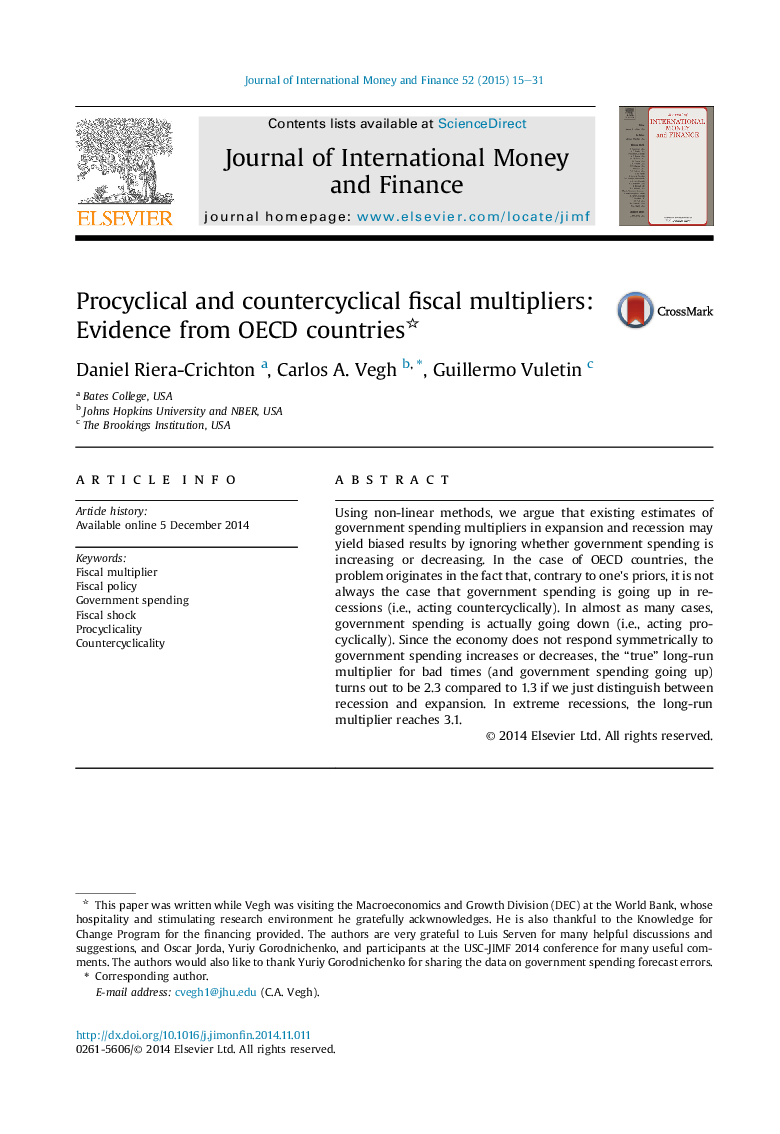| Article ID | Journal | Published Year | Pages | File Type |
|---|---|---|---|---|
| 963381 | Journal of International Money and Finance | 2015 | 17 Pages |
Abstract
Using non-linear methods, we argue that existing estimates of government spending multipliers in expansion and recession may yield biased results by ignoring whether government spending is increasing or decreasing. In the case of OECD countries, the problem originates in the fact that, contrary to one's priors, it is not always the case that government spending is going up in recessions (i.e., acting countercyclically). In almost as many cases, government spending is actually going down (i.e., acting procyclically). Since the economy does not respond symmetrically to government spending increases or decreases, the “true” long-run multiplier for bad times (and government spending going up) turns out to be 2.3 compared to 1.3 if we just distinguish between recession and expansion. In extreme recessions, the long-run multiplier reaches 3.1.
Related Topics
Social Sciences and Humanities
Economics, Econometrics and Finance
Economics and Econometrics
Authors
Daniel Riera-Crichton, Carlos A. Vegh, Guillermo Vuletin,
